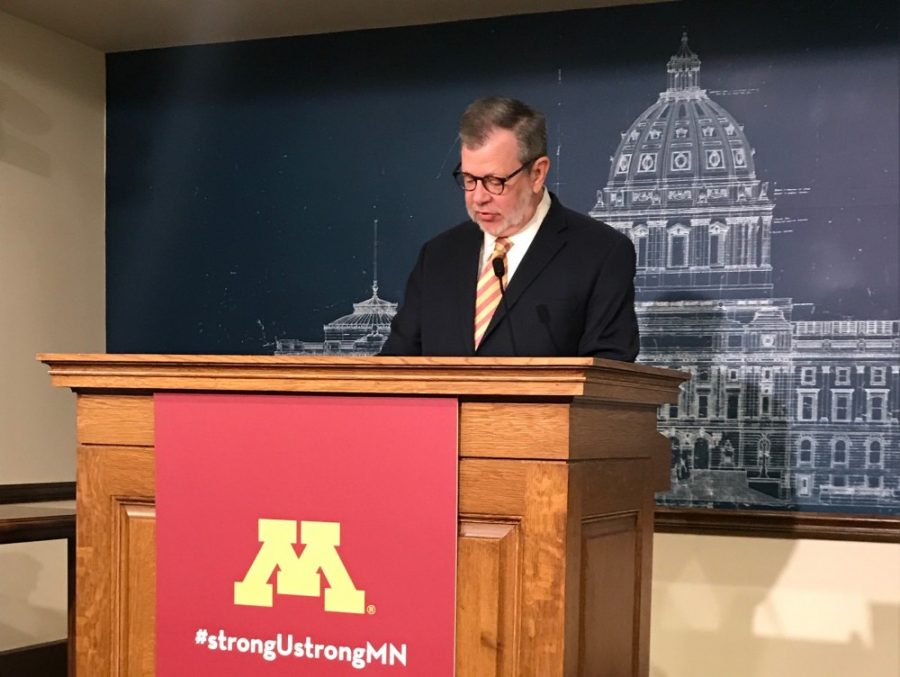University of Minnesota President Eric Kaler laid out the school’s funding requests at a press conference Wednesday morning as the state’s legislative session begins.
The school is asking for a “modest” increase in state funding for the next two fiscal years in the form of an $87 million budget request as well as a $232 million capital bonding request, Kaler said. He stressed the importance of these requests to prevent steep tuition increases and address infrastructure needs on all campuses.
“Facilitating our core mission requires investments in our people and investments in our infrastructure, and that’s why our legislative request is focused only on the operational essentials that allow us to deliver on that mission,” Kaler said. “Our legislative request is indeed restrained and reasonable, but also importantly, it’s forward-looking.”
The University’s biennial budget request is less than previous asks. In 2017, the school requested around $147 million over the biennium, ultimately receiving around $54 million.
“I think we have always brought forward reasonable requests, some years larger than others. This reflects our commitment … to operational excellence … to funding core elements that the University needs to increase and maintain our highly qualified employees and to minimize tuition increases,” Kaler said.
He said he anticipates a 2 percent resident tuition increase for Twin Cities undergraduate students for the next academic year if the budget request is met, although this would need to be approved by the Board of Regents. While the University will try to “minimize” tuition increases, a partial budget request could result in a sharper increase, Kaler said.
Budget years are not traditionally used to produce bonding bills, but the University is still requesting a capital investment allotment. This includes $200 million in Higher Education Asset Preservation and Replacement, a number the University has requested in past sessions. The request also asks for $28 million for renovations to the Child Development Building and $4.3 million for renovations to A.B. Anderson Hall on the Duluth Campus.
Other speakers emphasized their work at the University, including Jed Elison, assistant professor at the University’s Institute of Child Development. Elison said the University’s research on early childhood autism has helped improve early detection.








